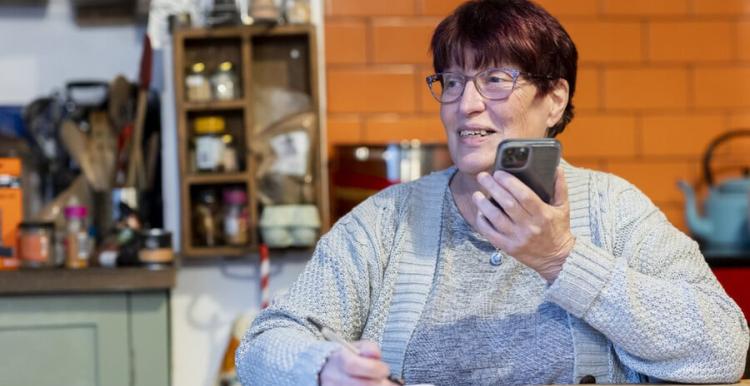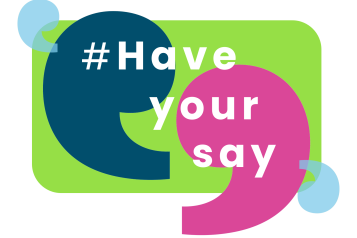Independent advocacy services in East Sussex
This guide is designed to help you understand what independent advocacy is, who can access an independent advocate, when an advocate may be able to help, and how to speak with one in East Sussex.
We explain when you can self-refer and when a professional needs to submit a referral on your behalf.

What is independent advocacy?
Independent advocacy supports people to have their voices heard, make informed choices and partake in decisions about their health and social care.
Independent advocacy is confidential, free to access and helps people navigate health and social care. Advocates are impartial and they do not work for the NHS, the council or providers of care.
There are two key types of independent advocacy, statutory and non-statutory.
Statutory advocacy describes the support provided when a person is legally entitled to an advocate under certain legislation because of their specific circumstances.
Non-statutory advocacy is also sometimes referred to as ‘community advocacy’ or ‘general advocacy’. This type of advocacy is not a service mandated by law but provides help to existing users of adult social care services when they may benefit from support or representation in relation to their needs.
How can independent advocacy help?
An independent advocate can:
- Listen to what you have to say
- Support you to express your views and what you want or don’t want to happen
- Provide information so you understand your options
- Offer practical help such as writing letters or attending meetings
- Explain responses and correspondence to help you understand the process you are going through
An advocate cannot offer counselling, befriending or legal advice, make decisions for you or tell you what to do.
What independent advocacy services are available in East Sussex?
The type of independent advocacy services available to you depend on your unique situation and individual needs. We outline the different kinds of independent advocacy below.
Independent Health Complaints Advocacy Service (IHCAS)
If you are unhappy with the service, you, or someone else has received from the NHS, you have the right to raise your concerns about it through making a complaint.
If you wish to make a complaint about a service provided by or paid for by the NHS, then you are eligible for support from the Independent Health Complaints Advocacy Service (IHCAS), which is delivered in East Sussex by The Advocacy People.
The Advocacy People also have self-help guides and fact sheets on their website which can support you to make an NHS complaint.
If you are an East Sussex resident and would like to access free and confidential advocacy support to make a complaint about a service provided, or paid for, by the NHS, you can self-refer to The Advocacy People via:
Email: info@theadvocacypeople.org.uk
Telephone: 0330 440 9000
Website: The Advocacy People
Please note that Independent Health Complaints Advocates are unable to help with taking legal action, NHS employee disciplinary procedures or complaints about private health services.
Independent Care Act Advocacy (ICAA)
Local authorities must involve people in decisions about their care and support and provide an independent advocate where the person has substantial difficulty being involved and has no appropriate individual to support them.
An Independent Care Act Advocate (ICAA) can support you with your social care assessment, support planning and review, and concerns with safeguarding if you have substantial difficult taking part in these things. This could be if you:
- find it hard to understand and retain important information
- have trouble using the right information to communicate your views, wishes and feelings, or to make decisions
- do not have an ‘appropriate person’ who can speak up for you
Adult Social Care professionals at East Sussex County Council can request a Care Act Advocate if you are eligible for Council funded services. You cannot self-refer.
South West Advocacy Network (SWAN) provide Independent Care Act Advocacy in East Sussex:
Email: reception@swanadvocacy.org.uk
Telephone: 03333 447928
Website: https://swanadvocacy.org.uk/
Independent Mental Health Advocacy (IMHA)
If you are subject to certain sections of the Mental Health Act 1983, you may be entitled to help from an Independent Mental Health Advocate (IMHA). This could be you if you are:
- Detained under the Mental Health Act (normally in hospital)
- Subject to Guardianship
- Subject to a Community Treatment Order (CTO)
- A conditionally discharged restricted patient
IMHAs support you to understand your rights, access information and participate as much as possible in decisions about your care and treatment. IMHAs are an additional safeguard for you when you are subject to certain sections of the Mental Health Act.
You can either self-refer for an IMHA or ask a professional to make the referral on your behalf.
South West Advocacy Network (SWAN) provide Independent Mental Health Advocacy in East Sussex. You can contact them or complete a self-referral below:
Email: reception@swanadvocacy.org.uk
Telephone: 03333 447928
Website: https://swanadvocacy.org.uk/
Independent Mental Capacity Advocacy (IMCA)
Independent Mental Capacity Advocates (IMCA) support people who are over 16 years old, have been assessed as ‘lacking capacity’ and do not have any friends or family who can speak independently of services for them.
This means they are not able to make or understand a particular decision about their life because the way their mind or brain works has been affected by an illness, an injury or a disability. They must have been assessed by a doctor or a social worker at the time the particular decision needs to be made.
The person might have dementia, learning disabilities, mental health problems, a brain injury or they might have had a stroke. A lack of capacity can be temporary such as when someone has been in an accident and is unconscious.
An IMCA can also help if there is a chance you could face harm or abuse because of your difficulty in making decisions. This is known as ‘safeguarding.’
If you're entitled to an IMCA, they will be appointed to act on your behalf. In England, local authorities appoint IMCAs. You cannot self-refer.
The Advocacy People provide IMCA services in East Sussex:
Email: info@theadvocacypeople.org.uk
Telephone: 0330 440 9000
Website: The Advocacy People
Children and young people’s advocacy
If you are aged between 7 and 19 years old and have a disability, special educational need or are looked after, the Children and Young People’s Advocacy Service can help make sure that you are getting the right support:
- to be healthy
- to stay safe
- to enjoy and achieve
- to make a positive contribution
- to achieve economic wellbeing
They can also help you to have your views and wishes heard at:
- reviews and meetings
- school or college
- when there are changes in your life
- if you don’t feel safe
They can do this by working with just you or supporting you in a group to learn about your rights and speaking up about your views and your goals.
South West Advocacy Network (SWAN) provide the Children and Young People’s Advocacy Service in East Sussex. They only accept referrals directly from East Sussex Children’s Disability Service staff. They do not accept external or self-referrals.
Email: reception@swanadvocacy.org.uk
Telephone: 03333 447928
Website: https://swanadvocacy.org.uk/
Community advocacy
Community advocacy refers to advocacy that's not a legal entitlement.
This type of advocacy provides help to existing users of adult social care services when they may benefit from support or representation in relation to their needs.
Independent community advocates may be able to help you with a broad range of issues that are related to Adult Social Care services. This may include, but is not limited to:
- Challenging the decisions of Adult Social Care services, including personal budgets, client contributions and placement decisions.
- Supporting a request or attending assessment and review processes for care and financial assessments for care.
- To make a complaint about Adult Social Care.
- For support around direct payment issues.
- If you need support through a safeguarding or best interest process.
- If you need to raise a safeguarding concern.
- Support around the financial appeal process.
- If you require advocacy support with Occupational Therapy issues.
- Complaints to the Local Government and Social Care Ombudsman.
This service is available to residents of East Sussex who are funded (this means that the care services you need are paid for by the local authority) by East Sussex County Council and are:
- Aged 65 or over
- Between 18 and 65 with physical disabilities
- Between 18 and 65 with sensory impairments
- Over 18 with a learning disability
- Over the age of 18 with mental health issues
- A Carer of someone eligible under the above categories
You can self-refer or a professional can refer you. South West Advocacy Network (SWAN) provide Community Advocacy Services in East Sussex:
Email: reception@swanadvocacy.org.uk
Telephone: 03333 447928
Website: https://swanadvocacy.org.uk/
Contact Us
If you’ve used a health or care service recently, please share your experience on our Feedback Centre. We want to hear what’s working well and where services may improve.
If you would like help to navigate health and care services, or you wish to share your experiences of health or social care with us, you can contact our Information and Signposting service on:
Telephone: 0333 101 4007


